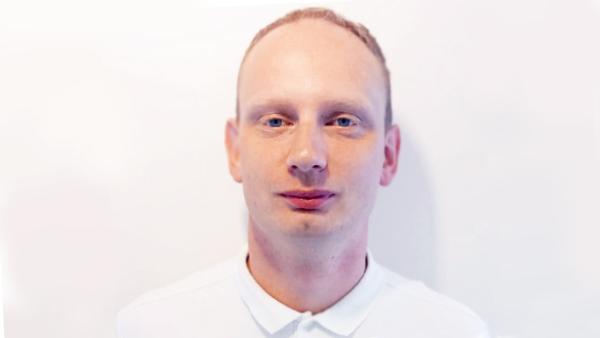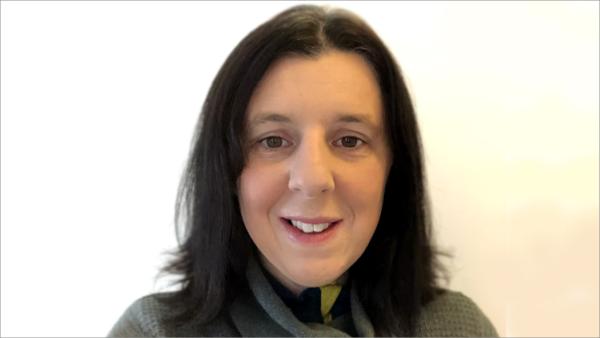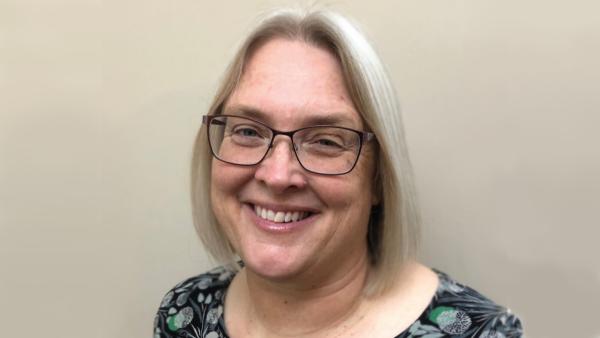The demand from students and early career physios to build research into their career trajectory is growing. Kristen Potter-Price, CSP student officer, speaks to leaders in research and education about the value of student-led research and explores how students can get involved in this year’s student conference

The value of student-led research and a growing interest in research-focused careers have been hot topics among students and others in the profession in recent years. While non-clinical placements initially had their fair share of sceptics and detractors when they rapidly gained pace during the pandemic, the benefits of research-focused placements are becoming increasingly apparent, and diverse career options more visible.
It is becoming clear we’re at a point where research-focused roles are not only attractive to physiotherapists with seasons of clinical work under their belt – now others including students and early-career physios are finally feeling permitted to contribute to the academic scene.
The value of student research
Daniel Biggs, a graduate of Glasgow Caledonian University’s doctor of physiotherapy programme, has recently completed a term as learning and development officer for the CSP’s Student Reference Group. Daniel had a particular interest in platforming student-led research, viewing it as a valuable resource, and he is determined to prevent pre-registration dissertations from gathering dust on literal or virtual shelves.

‘I feel there is real value in student-led research,’ he says. ‘Typically, thousands of physiotherapy students in the UK undertake a dissertation each year. If this is promoted and harnessed well, it can positively impact the profession’.
Daniel’s work is exploring perfectionism and burnout among both students and clinical physiotherapy staff and will be presented as part of a poster at the CSP’s student conference in the autumn.
‘The doctorate in physiotherapy at Glasgow Caledonian University provides opportunity across all four pillars of practice, including clinical and research’, adds Daniel. ‘This was appealing to me because I knew I would conduct research projects that investigate and add to current literature, and qualify as a chartered clinical physiotherapist.’
Building confidence to contribute
This desire is becoming more prominent among undergraduate students, too: among a cohort of students who recently commenced a six-week leadership placement at the CSP, each of them completed a feedback form they all independently stated they would most like to ‘improve [their] research skills’ during their time with us. These students were all undergraduates; all unknown to each other; and some of them were on their first placement.
Their early interest in research, along with many conversations CSP colleagues and I have had with students, HEI staff and others in the profession over the last year reaffirmed part of the purpose of this year’s CSP student conference: to put student-led research front and centre and showcase not only the skills honed by physiotherapy students but the intrinsic value of their research findings.
All over the UK – and indeed further afield – students on pre-registration undergraduate and master’s degree courses are gaining skills in clinical and non-clinical research and producing results that can inform practice, too – but without the skills and confidence developed at doctoral level, those interested in expanding their research capabilities need guidance and opportunities afforded by educators, placement providers and other supporters in the physiotherapy community.
Tangible benefits

The research components of pre-registration courses are not only integral for the development of a student’s individual skills but are producing tangible benefits for the profession. We have seen this from our students on placement at the CSP where allowing students to lead on aspects of current projects promotes innovation and creativity, ultimately influencing the depth of our shared knowledge.
Caroline Coulthard, vice-chair of the CSP-recognised professional network the Physiotherapy Research Society (PRS), has a particular interest in student-led research and has seen the contribution students have made directly.
Our student committee members have been a valuable addition to the PRS committee, helping us to better understand students’ learning priorities and challenges, she says.
‘They bring unique insights and perspectives supporting the PRS’s overarching aims and strategies. We are keen to work collaboratively with students fostering a research culture in our profession from the outset of physiotherapists’ careers.
‘We are proud to be supporting this year’s CSP student conference. Students provide valuable contributions to research output;
I’m looking forward to the presentations on the day and meeting students and learning about their first experiences of research and hopes for the future.’
Meredith Newman, CSP research adviser
The volume and quality of student-led research is steadily increasing, and research placements mean students are developing and extending their research skills in new settings. In our 2022 review, students and educators told us how important it was to for the CSP to create more opportunities to showcase student-led research, foster presentation skills, and to build physiotherapy networks.

In response, working with the Student Reference Group we created a specific student conference as an integral part of the CSP 2023 conference series. It is a free, hybrid event, with chances to interact, ask questions and leave comments.
The programme is varied; it includes speakers about topical issues identified as important by students – for example, collaborative exercise delivery, paediatric rotations, experiences of a leadership placement, working with people with dementia. It includes more student-led research.
By adjusting submission timelines and processes and working with the Physiotherapy Research Society we extended our abstract submission and peer review process for student-led research. This has doubled the amount of student-led research at conference.
ePosters are accessible to delegates at any 2023 conference event and peer-reviewed student abstracts will also be part of conference proceedings published in the Physiotherapy journal. For more about conference 2023 and to register for free.
Conference planning for 2024 is well underway: if you are an educator or student member doing a research or quality improvement project please watch out for communication about how you might get involved.
Find out about how the CSP is showcasing student-led research and the support materials here.
Find Out More
Number of subscribers: 1




































